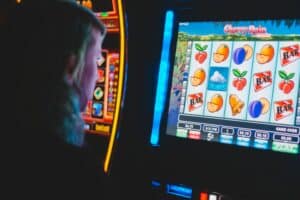The Evolution of Slot Machines in the Digital Age
Since slot machines were first introduced as mechanical devices in the late 19th century, they have undergone huge changes. Initially, they had physical reels and quite simple mechanics. However, a major change came in the latter part of the 20th century: electronic versions with integrated video technology offered more complex games and features. The digital age has further revolutionized slot machines. Software-driven games have been added, offering improved graphics, interactivity with gameplay, and feature-rich experiences for players. This article explores the evolution of slot machines, focusing on technological advances from early mechanical versions to today’s complex digital platforms.

Early Developments in Digital Slot Machines
The late 20th century saw a revolution in the casino industry: video slots took over from their mechanical analogs. Many factors were at play, but video technology was the decisive one. The ability to digitize reels opened many opportunities for slots and game developers. The initial reaction from the public and the industry was mixed. On the one hand, purists missed the physical spinning reels and tactile sensation of mechanical machines.
On the other hand, many people loved the newness of it all. The introduction of random number generators was a defining moment, as they ensured random outcomes. Casinos needed to create a fair play environment and earn the player’s trust with these new digital machines. The technological leap was significant and laid the foundation for the online slots we see today.
Rise of Online Slot Machines
Internet-based casinos got their start in the mid-1990s, when traditional casino games, including slot machines, were first offered online. During this time, developers created digital versions that were faithful to the video slot machines found in physical casinos. These first online slots were primitive but paved the way for the advanced games we see in online casinos today. As more and more people gained access to the internet, the popularity of these platforms continued to grow. People appreciated the ease of picking up their smartphones or logging into their computers to play their favorite titles, all without leaving home.

Today’s online casinos offer various games, more than most people would have imagined possible in the 1990s. Players can also take advantage of all types of bonuses and promotions, such as spins with no wagering requirements on real money slots. Many players find these offers attractive because they allow them to sample different titles while learning how these platforms work. Online casinos strive to offer a user-friendly experience that’s accessible and enjoyable, allowing users to play their favorite games from the comfort of their homes.
Technological Enhancements in Modern Slot Machines
When it comes to modern slots, technology has worked wonders. The visual and auditory experience is stunning, with beautiful graphics and immersive sounds. The inclusion of skill-based gameplay elements has diversified the demographic and attracted fans of games of skill as well. Mobile gaming has become a massive hit, with modern technologies offering a way to play slots on the go. Gamers from all parts of the world can play slots at any time of the day. There’s no longer a need to schedule a trip to a casino; instead, these games are available 24/7.
The Role of Software Providers
A number of software providers have made it possible for platforms to offer slot games online. These companies have brought innovative features like themed slots, jackpots, 3D graphics, and other features to online slots. While slots have always had their appeal, these advancements have made them more interactive and immersive, some with plots and storylines to keep players engaged, pushing the boundaries of traditional slots.
The Future of Slot Machines
The future of slot machines looks promising, particularly if cutting-edge technologies like virtual reality and blockchain can be successfully integrated. On some platforms, VR already delivers a fully immersive gaming experience that simulates the look and feel of being inside a physical casino. Meanwhile, blockchain offers increased security for those who want anonymity in gaming transactions. These innovations could transform player interactions and game interfaces, turning them into something more interactive and attractive to a broader audience. What’s more, AI and machine learning offer the possibility of more personalized gaming experiences, which may change how players perceive slot games.
